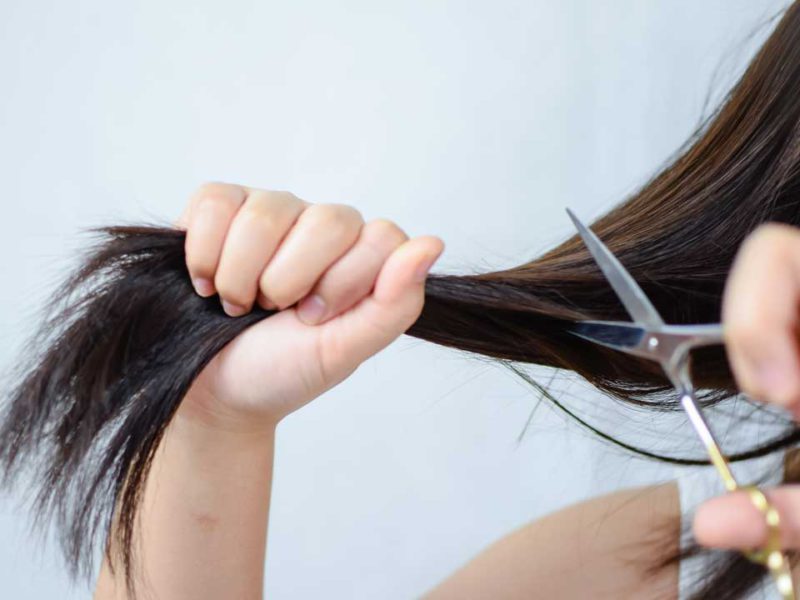With the Lunar Chinese New Year now finally in full-swing, Malaysians are getting into the festive spirit with the roaring red adornments and joyful CNY songs blasting in every mall. This significant 15-day event goes way back and acts as a spring celebration to usher in another new year in Chinese culture.
But celebrations aside, this period also calls for the adherence of many traditions and customs during this fortnight, all in a bid to keep the bad away while inviting the good into the Year of The Dragon!
And if you’re curious on what some of these traditions and customs are, we’ve rounded up a list of 10 do’s and don’ts that you should keep an eye out for this Chinese New Year.
Here’s what you should DO on CNY
1. DO wish and greet everyone you meet

It’s almost that time of the year when the Chinese community would visit their relatives and greet them with good wishes. Most of these wishes are 4-word idioms that carry the meanings of what are they wishing the recipients. The most common CNY wishes are “Xin Nian Kuai Le” (Happy New Year) and “Gong Xi Fa Cai” (Wishing you wealth and happiness).
Greeting someone at this festive event is a traditional custom and is considered not just polite, but also shows a sign of respect, especially to elders. So do remember to wish your relatives a happy new year in your upcoming visits, and don’t just breeze past with a brisk ‘hello’!
2. DO clean up your house before the first day of CNY

One of the very important traditions that needed to be done before the big day is spring cleaning. This task may seem mundane, but it is to symbolize the removal of bad luck garnered over the past year to make room for the new year.
Plus, it never hurts to clean your house, especially those nooks and crannies that had gathered dust over the year, before your guests arrive.
3. DO give red envelopes and gifts (if you’re married)

The Chinese view the colour red as a symbol of happiness and vitality, therefore giving someone a red envelope is a way to wish them joy. And of course, the money inside is some extra allowance for the kids!
While normally only married couples would give red envelopes, some single individuals would present their family, especially their parents ‘ang pao‘ as a way to thank them for all the care they received in the past year. Furthermore, food hampers are also popular during this time of the year as many would bestow these to relatives during visits. The act of giving is believed to be another way to usher in good wishes to the recipients.
4. DO wear red on the first day

As mentioned before, red is a lucky colour in Chinese culture, so wearing red on the first day is said to bring you luck and happiness for the new year. With that said, keep in mind to try avoiding wearing black or white no matter how stylish it may appear, as these colours are typically associated with mourning in Chinese custom.
5. DO set off fireworks (legally and with care!)

The most entertaining (and perhaps the noisiest too) activity of them all is watching the fireworks go off at night. Fireworks on Chinese New Year’s Eve are a sight to see with their mesmerizing symphony of colours, and it also represents scaring off the evil spirits for a new start.
The Chinese community would hang a red firecracker near their main doors and set off a series of blasting sounds so when you see them lighting one up, get ready to close your ears and enjoy the show! But as always, be sure to exercise caution and ensure that it is legal to set off fireworks in your area before doing so.
Don’t do these during Chinese New Year
6. DON’T wash or cut your hair on the first day

We know that showing your best look on Chinese New Year is a priority, however, it is taboo to wash or cut your hair on the first day. Because the Chinese character for hair ‘fa‘ is the first word of the phrase ‘prosperity’, washing or cutting some of it off means washing off and cutting down the luck of fortune. So maybe wash your hair a day before just in case, if you’re a stickler for tradition.
7. DON’T mention taboo words

On an auspicious day like the first day of Chinese New Year, you should avoid mentioning words with negative meanings such as death, ghost, murder, sickness and poverty. This is to prevent any misfortune from befalling you or your family members in the new year. Instead, you can replace these taboo words with euphemisms to avoid any of these tragedies.
8. DON’T clean or sweep the floor

Although spring cleaning is important, that task is encouraged to be done BEFORE the first day. The Chinese believe that cleaning or even sweeping the floor is equivalent to sweeping away the fortune and luck ahead. If you have to sweep, try to start on the outside and work all the way to the inside as this symbolises collecting money.
9. DON’T break anything

Be careful with the bowl or plate in your hands. Breaking stuff may lead to a family breakup or loss of money in the new year. If someone has accidentally broken something, wrap the fragments inside a red paper or a cloth and wish “Sui sui ping an”, which means ‘all year round safe and sound’.
10. DON’T owe or lend people money

You wouldn’t want to start your new year with debts, so it is encouraged to have all your debts settled right before the first day. Owing money to people on the first day may lead to future debt and be considered unlucky for the entire year. However, even if someone owed you money, do not go to their house to demand for it as this is also taboo.
Chinese New Year is both a joyous occasion and one steeped in rich culture and history. Keep this list as a guide ahead, so you won’t have to worry about causing any raised eyebrows, and most importantly, enjoy the festivities!
Tap here to give us a ‘Like’ on Facebook and stay up-to-date on the latest news!








